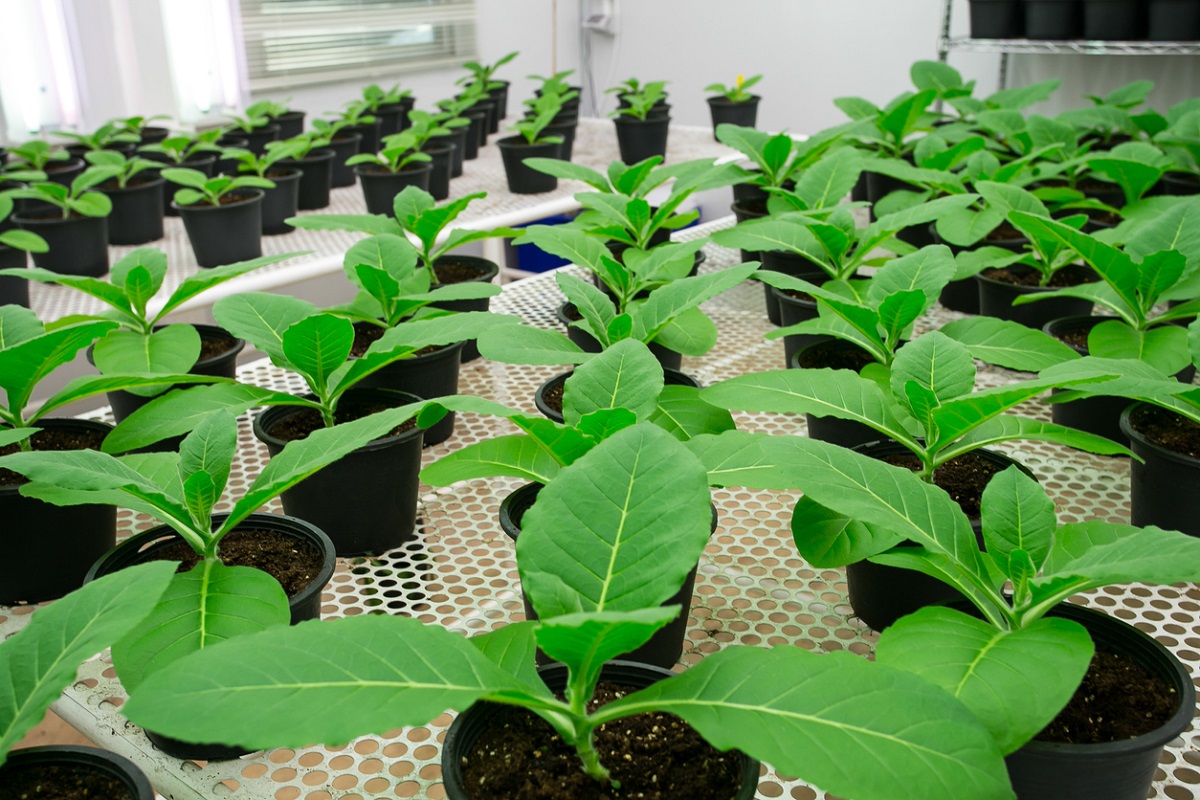
Gene Inserted in Tobacco Plant Sheds Light to Increased Heat Stress Resistance
August 5, 2020| |
A team of Italian scientists inserted a gene from a soil bacterium to tobacco plants and this resulted in probable higher resistance of the plants to water and heat stress as compared to other genetic modifications done in the past.
The scientists investigated the effects of the roID gene from Agrobacterium rhizogenes that was inserted into Nicotiana langsdorffii, also known as Langdorff's tobacco. They investigated the potential of this genetic modification in decreasing the effects of water and high heat stresses. They used different approaches in their study, including high-throughput metabolomics and ionomics study, and identifying important plant phytohormones. They were able to determine that the decrease of elements and secondary metabolites and increase in amino acids and derivatives signified water stress reaction from the plant. These were identified to be key molecules in water stress.
Through the study, the scientists were also able to determine the influence of abiotic stresses on plants along with the effects of the roID genetic modification on plant stress response. The roID plants that were exposed to high-temperature stress were found to have higher dry weight levels compared to the controls. They were also found to have more potassium and adenosine, with lower levels of damage-associated metabolites. These suggest an increased resistance to heat stress by the plants. They recommended that more studies are required to further determine if the metabolic differences they concluded were related to the expression of the roID gene or to the knockdown gene mechanism.
The full article is published in Metabolites.
| |
You might also like:
- Vietnamese Researchers Report Heat Tolerant Plant Transformation
- Gene Regulates Heat Stress Response in Pepper
- Gene Improves Heat and Drought Tolerance in Wheat and Arabidopsis
Biotech Updates is a weekly newsletter of ISAAA, a not-for-profit organization. It is distributed for free to over 22,000 subscribers worldwide to inform them about the key developments in biosciences, especially in biotechnology. Your support will help us in our mission to feed the world with knowledge. You can help by donating as little as $10.
-
See more articles:
-
News from Around the World
- Svalbard Global Seed Vault Starts a Century-long Seed Experiment
- Nigerians Ready to Know More About GM Crops
- Study Shows Plants Regulate Growth-Inhibiting Hormones to Survive
- EFSA Releases Scientific Opinion on GM Oilseed Rape Ms8 x Rf3 x GT 73
-
Research Highlights
- Gene Inserted in Tobacco Plant Sheds Light to Increased Heat Stress Resistance
- Overexpression of Atsob3-6 Gene Variant Improves Seed Size, Seed Weight and Seedling Emergence in Camelina
-
Plant
- OsABCI7 and OsHCF222 Interaction Stabilizes Rice Thylakoid Membrane
- Gene Editing Breakthrough Seen to Improve Breeding of Barley Crops
- Researchers Map Largest, Most Complex CRISPR System
- Webinar: The Challenges of Communicating about Gene Technologies
-
Health
- More Countries Join the COVID-19 Food Coalition
- Study Finds SARS-CoV-2 Has Six Strains
-
Read the latest: - Biotech Updates (February 18, 2026)
- Gene Editing Supplement (January 28, 2026)
- Gene Drive Supplement (February 22, 2023)
-
Subscribe to BU: - Share
- Tweet

